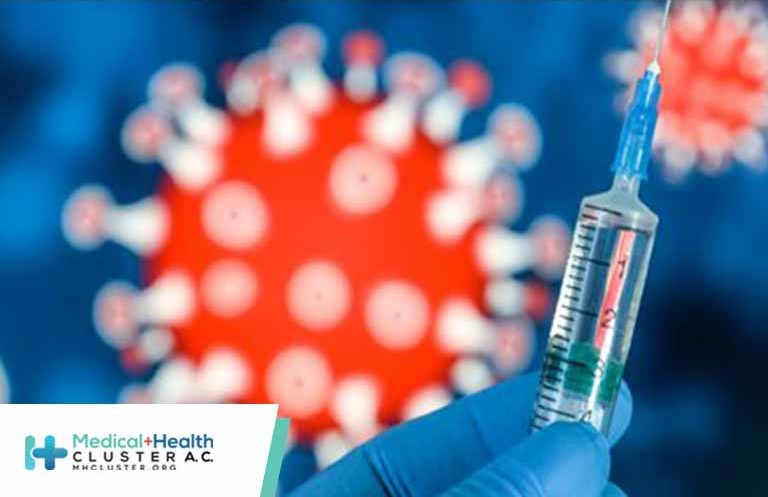En atención a la creciente preocupación sobre la confianza en...
Leer más
Janssen’s Viral Vector Vaccine: How it Compares

The final week of February 2021 set two contrasting milestones in the COVID-19 pandemic. The week began mourning the more than 500,000 lives lost in this country so far in the pandemic. It ended with hope: a third COVID-19 vaccine, using a new technology platform. Introducing Janssen’s new viral vector vaccine, awarded the FDA’s emergency use authorization for those age 18 and older. (Janssen is the pharmaceutical arm of Johnson & Johnson.)
Pfizer and Moderna’s products are mRNA vaccines. They use messenger RNA to create replicas of coronavirus spike proteins to trigger an immune response. In Janssen’s vaccine, the messenger is a viral vector which is genetically engineered to make spike protein “lookalikes” in the body, which then trigger the immune response. Janssen’s viral vector is Ad26, a weakened version of an adenovirus. Several of its genes have been removed to make it “replication deficient.” It’s basically a dead virus. It can’t multiply in the body or give someone COVID-19. The genes in the viral vector cannot and do not incorporate into human DNA.
One Dose and Done
Janssen’s vaccine has several logistical advantages that make it very user-friendly for both vaccinator and recipient. Transportation and storage are much simpler. No pizza cartons, dry ice, or subzero freezers. Janssen’s five-dose unpunctured vials of vaccine can be stored at standard refrigerator temperatures of 2-8 °C (26-46 °F) for up to 3 months. No dilution is needed, which speeds up the vaccination process. Punctured vials must be discarded after 6 hours if kept refrigerated, or after 2 hours if kept at room temperature.
The Janssen viral vector COVID vaccine requires only one injection. Both the Pfizer and the Moderna vaccines require two doses. With Janssen’s single-dose vaccine, you can fully vaccinate your patient in one visit. This makes it a good option for patients who don’t want to or can’t manage to get back for that second dose, including those who are homebound or from populations that are mobile.
For patients, the “one dose and done” option has several downstream benefits: no need for a second vaccine appointment and only one set of vaccine side effects, which are similar to those for mRNA vaccines. Tell your patients to be prepared for pain at the injection site, headache, fatigue, and muscle pain. Symptoms last at most 1-2 days and are worse in younger as compared with older patients.
How About Efficacy?
Phase 3 studies for all three COVID vaccines are huge: 44,000 for Pfizer; 30,000 for Moderna; and 40,000 for Janssen. All included diverse populations with respect to race/ethnicity and age (both young and old), and all included patients with underlying medical conditions.
Phase 3 study results for all three COVID vaccines far exceed the FDA’s bar of at least 50% efficacy. But there is a big difference. The respective trials took place at different calendar times and in different locations. For this reason, you can’t directly compare Janssen’s efficacy results with those for Pfizer and Moderna, whose studies were done earlier in the pandemic.
When Janssen tested its vaccine, the trial conditions were much more difficult. The background COVID incidence was higher, with more variants circulating, including variants of concern, which can increase transmissibility and disease severity.
Janssen’s COVID vaccine was found to be 66.3% effective overall in preventing symptomatic COVID just 14 days after a single dose. It maintained at least 63% effectiveness across age, sex, race, and ethnic categories and also for those with underlying medical conditions. Vaccine efficacy varied geographically and was highest in the United States (74.4%) and lowest in South Africa (52%), where the B.1.351 variant dominated.
Janssen’s efficacy results were more impressive in preventing hospitalizations. The Janssen vaccine was 100% effective in preventing hospitalization from COVID-19 by day 28 after vaccination. There were no COVID-associated deaths in those who were vaccinated.
Variants of concern have become a wild card. Moderna is already working on a booster for the South Africa (B.1.351) variant. Pfizer may study an mRNA vaccine using a variant sequence. Janssen already has a study in progress to see if two doses of its single-dose vaccine work better than one.
The Pfizer vaccine was the first-ever mRNA vaccine authorized by the FDA. At the time of authorization, mRNA vaccines were new but not unknown. Researchers had been working with them for years. Janssen’s viral vector platform is supported by an even larger body of research, including an Ebola vaccine, already tested in pregnant women and children and approved in Europe in July 2020. More than 193,000 people, including patients of different age groups and conditions, have received various adenovirus-based investigational vaccines.
We now have three safe and effective COVID-19 vaccines. ACIP has expressed no preference for any of the three authorized vaccines. In the vaccine trials of all three vaccines, no one who received a COVID vaccine has died from COVID.
Créditos: Comité científico Covid




